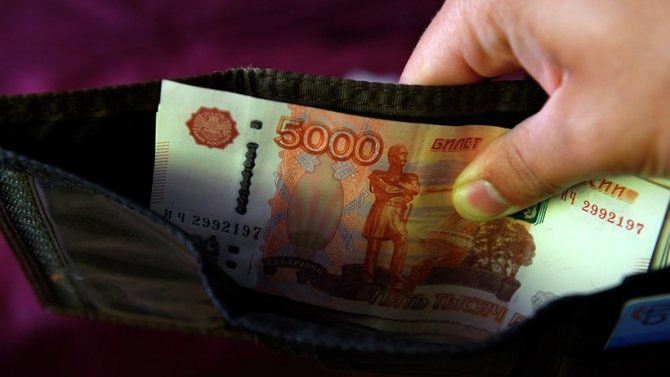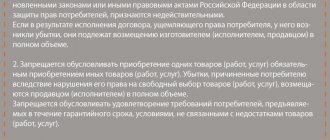Federal law on levies: official text
The actions of the management of the educational institution are regulated by Federal Law 273 “On Education in the Russian Federation”. State Duma deputies approved the bill in 2013. The draft states that funds are allocated from budgets of different levels for:
- payment of salaries to teachers and kindergarten teachers;
- purchase of teaching aids, textbooks, teaching aids;
- toys (for preschool institutions).
Local authorities are required to allocate money for repair work, for the maintenance of sports and play areas at educational and preschool institutions, as well as for landscaping the surrounding area. That is, parents do not have to pay for the repair of a classroom or group in a kindergarten, or for the purchase of trees for planting.
According to the law, each educational institution publishes a list of free and paid services that it provides. It should be freely available on the website. Illegal actions include the establishment of paid services, if they should be free according to current legislation.
Nevertheless, the management of some schools takes advantage of parents' ignorance in matters of education. To avoid misunderstandings and know what they are not entitled to take money for from an educational institution, we suggest downloading the law on fees in schools.
Correctly process payments for certain services
- Don't hand over money. Even if it becomes known that they were spent for other purposes, it will be impossible to confirm that you handed over anything at all.
- Forget about receipts. You will not be able to control where this money will go, because formally in this way you are transferring it not to the school, but to a certain individual (teacher or class teacher of the child).
- Do not sign an agreement with the wording “for voluntary donations.” When you ask to hand over money, you are given a trustworthy paper with the important word “agreement” in the title - and you sign without reading. But you should be more careful: by paying (as you were told) for a new school uniform for your child, according to the documents, you are just making a “voluntary donation” for the abstract needs of an educational institution. When six months later the promised jackets and trousers still don’t appear, nothing can be proven. Because the money was formally contributed for something completely different.
Pay for any services at an educational institution only through the accounting department, signing an agreement for the provision of additional educational services . It should detail your information and information about the institution, a list of services provided and the amount of money charged.
Why do they not have the right to take money from parents?
The official text of the law defines the list of educational services that must be provided free of charge. Schools cannot demand money from parents for:
- purchase of textbooks;
- renovation of premises;
- purchase of educational furniture and equipment;
- landscaping of the territory (this includes the purchase of seedlings);
- lessons included in the list of standard ones;
- wages of cleaners or security guards.
Parents do not have to pay for classes unless they are included in the list of additional training programs. Standard lessons required by federal law are provided free of charge. Preparatory work for tests or exams is not paid.
The school is obliged to independently pay for the services of cleaners and security, purchase textbooks and teaching aids. There is an exception to this rule. For example, if a student is enrolled in additional programs not provided for by federal standards, parents purchase textbooks at their own expense.
Read also: Rules for exporting animals abroad
The educational institution independently pays for the purchase of any inventory or equipment used in classes. This includes sports equipment, computers, etc. Repairs and purchases of furniture for classrooms are also carried out at the expense of the educational institution.
Reasons for complaints
Since a child spends most of his time at school, there may be many reasons for complaints about school; of course, it all depends on the organization of educational and extracurricular processes by teachers.
Typically the reasons for complaints are:
- Teacher's rudeness;
- Violations of the class schedule (lesson cancelled);
- Poor heating system in the school;
- “Pulling” money from parents for charity, classroom repairs, and more;
- Unsanitary conditions in the school canteen, poor food;
- Child abuse;
- Incompetence of the teacher;
- Lack of medical workers on the school staff;
- Lack of security guards at school.
Paid services
The law provides for not only free, but also paid services at school. For the provision of additional types of educational services, educational institutions may charge a separate fee. The list includes the following services:
- teaching in additional educational disciplines. Paid separately if the course is not included in the standard school curriculum;
- classes with students on in-depth study of disciplines. This can also include tutoring. Tuition fees are established by agreement with parents, or they are regulated by the school charter if the teacher conducts additional lessons on the basis of an agreement with the employer. It can be carried out with one or two students at the same time; an individual approach is provided in the classes. Additional lessons allow weaker students to understand the course of school subjects or better prepare for upcoming entrance exams;
- Schools may provide teaching services for special developmental disciplines for children. For example, parents can pay for additional art or music lessons if they believe that the child has the inclination for this;
- other services are provided that are not included in the list of standards established by the state.
Each educational institution has the right to create a complete list of paid services, but the list must be freely available, and all information on additional disciplines must be transparent.
List of paid educational services
The school also provides a number of additional paid services in the second half of the school day. These include:
- Additional school disciplines not provided for by the federal program.
- School-based tutoring. In this case, the payment is set by the management of the educational institution. In-depth study of the chosen discipline can occur both individually and in groups.
- Specialized courses for the general development of the child. This category includes both creative specialties and socializing ones, in the case of children with developmental delays.
Payment for additional services must be completed correctly. Any funds must go through the school's accounting department or the payment will be void.
The parent enters into an agreement with the school, which guarantees the rights of both parties. The document must indicate the data of the individual, information about the educational institution, a list of services provided and the amount paid.
Where to complain about fees at school
If at the school your child attends, extortion is commonplace, and other parents prefer to put up with the situation, it is necessary to defend the rights to free education.
First of all, you should contact the management of the educational institution with a demand to explain the basis on which funds are raised. Be sure to ask for a written response. It will be useful to you if the matter comes to higher authorities.
In some cases, management prefers to resolve the conflict peacefully and stops extorting money (at least from the parent who does not want to pay). But sometimes it is necessary to contact specialized structures. If the director ignored your request and the fees remained the same, you must contact one of the following departments:
- municipal education committee (or regional);
- administration;
- police;
- department for combating economic crimes;
- prosecutor's office;
- Ministry of Education.
In some cases, parents fear that their child may be harmed after filing a complaint. In such a situation, the application should indicate a requirement for non-disclosure of data.
Read also: Federal Law on Protection of Competition
What to do if the school demands money for textbooks, repairs, security, etc. – instructions
Let's consider step by step what to do if in a state school the parent committee, teacher, class teacher or director oblige children or their parents to donate money for any needs.
Follow these rules:
- Try to explain to other parents or the person making the demand that you will not be handing over funds
. You can refer to the laws that we indicated above and safely declare that the fees are illegal. - Reach out to the parents of other children and find those who can join you in advocating for the right
to free education. - Write a written statement addressed to the director of the school institution.
In the document, require him to provide reasons for collecting money. It is better that the application be made on behalf of all parents of the class. - Receive a written response from the school principal.
According to Article 9 of Federal Law No. 59, approved in 2006, the head of the institution must respond to you in writing. In the document, he must set out the grounds and reason for collecting funds, as well as state in what amount they are required. Also, the response must contain the director’s signature and seal, otherwise the document will be considered fake. - When the class teacher asks for money, ask him to write out the request on a piece of paper
. Of course, no one will write it, but the parent and child will be left behind for a while. - Make a video or audio recording
. They will confirm the collection of money at the school. - File a complaint with any supervisory authority.
Attach a written response from the director, video or audio recording. - In case of intimidation, blackmail, extortion, go to law enforcement agencies.
Remember that when collecting money, the parent is an accomplice to the crime. When a criminal case is opened, it will no longer matter whether the donated funds were used for the needs of children.
Punishment for extorting money
The law provides for fines for extortion in schools. The following sanctions are provided for employees of educational institutions:
- restriction of freedom or forced labor for up to four years;
- arrest for six months;
- monetary penalty (maximum amount 80 thousand rubles).
Government officials have repeatedly stated that parents should not turn a blind eye to extortion. If this problem exists in the institution your child attends, there is no need to be afraid. You should contact one of the authorities authorized to punish the school management. Remember the right of every child to free secondary education and report violations in order to eliminate cases of extortion in schools in the future.
How to deal with extortion in schools and other educational institutions
Donate money for breakfast, excursions and security. Plus pay for a pile of textbooks, paint for repairs and new chairs. Very often, school administrations turn to students’ parents with such demands.
And, unfortunately, the well-being of the family and the desire to fork out for school needs are not always taken into account. Most parents are afraid to spoil relationships with teachers, believing that this will affect their children's grades. Is it possible to fight such extortions?
Report by Victor Averin.
Maxim is the editor-in-chief of an Internet site for young mothers of Yekaterinburg. With the start of the school year, the page where women usually share the secrets of a successful pregnancy suddenly turns into a platform for parents angry at school fees. The forum is replete with messages that free secondary education is becoming more and more expensive for students’ families every year.
Maxim Gareev, editor-in-chief of the Internet portal: “Usually such topics arise when they raise a lot of money - well, a lot of money, from 500 rubles - for the construction of something, or the repair of something, but this repair does not exist as such.”
Parents are indignant, but things usually don’t go further than that. There are more than enough people willing to expose the school management anonymously, via the Internet, but there are no such people to do it openly, with the risk of creating problems for your child. Dads and moms grumble, but continue to pay for the peace of mind of their schoolchild.
Svetlana, mother of a schoolboy: “When we were still entering this school, our friends warned us that there would be extortions there. But since the school is considered good and generally suits our area, we enrolled there. And now my child is already in 3rd grade. And starting from 1st grade, they collect money for repairs every year. The story has been going on for a long time, but there has been no repair.”
When Elena brought her son to a new school, without much preamble, she was offered to buy curtains for the class where her child would study. Mom parted with the money without any extra persuasion.
Elena Golovanova, mother of a schoolboy: “If I paid too much, I would be indignant. I just understand that our schools cannot exist without the help of parents.”
They can and should, say the prosecutor’s office of the Chelyabinsk region. Its employees discovered numerous violations by school administrations. When almost all the needs of an educational institution - from paying the security guards to buying chalk and toilet paper - are shifted onto the shoulders of parents. But prosecutors are not always able to prove this. Parents do not complain and support school management.
Lyudmila Elcheva, head of the department of the prosecutor's office of the Chelyabinsk region: “They agree to contribute this money. But they agree to contribute this money only because they are worried about their child.”
The prosecutor's office of the Kirov region is busy with a unique case - not parents, but school teachers approached them. According to them, the director set a payment plan for each teacher and the amount of required revenue.
Irina Zherdeva, senior assistant to the district prosecutor of the city of Kirov: “If the class teachers did not raise the amount that was needed for some specific needs, the director took any measures against them.”
Dealing with voluntary-compulsory collections of money in schools would be easy - if not for disagreements among the parents themselves. For some, this is a painful blow to the budget; for others, it is an insignificant expense. Few people understand where the collected money goes, but even fewer want to understand it.
Experienced teacher Irina Viktorovna proudly shows the wall panels that recently refreshed the interior of her classroom. Now this office is generally recognized as the most beautiful in the school. And this beauty did not cost the parents of the students anything. Former graduates who once studied in this class helped.
Irina Smorkalova, history teacher: “When they saw me with cans of paint in the summer, they offered to help and made plastic panels with their own hands. Accordingly, saving quite a good amount for the parents of the class.”
Very soon this beautiful office will run out of chalk, so necessary for studying. And here the only hope will be on the parents.
— Presenter: What to do if your child’s education in a free school costs a pretty penny if you have been voluntarily and forcibly turned into sponsors. We will talk about this with the head of the department for coordinating control and supervisory activities of Rosobrnadzor, Lyubov Maksimova. Hello, Lyubov Ivanovna.
— Guest: Good afternoon.
— Presenter: This situation very often occurs in schools: teachers offer a student who is lagging behind to study extra, but naturally, they ask for money for this. It is legal?
— Guest: Gaps in knowledge are the competence of the educational institution. Today, the pedagogical council is working, the pedagogical councils of the school are working in order to provide, so to speak, assistance from the school to such children in order to prevent such cases.
— Presenter: But paid clubs and sections, can they be organized in schools?
— Guest: The school may provide paid additional services, but only, so to speak, on a voluntary basis, if parents want to send their child to the paid section.
— Presenter: I have friends who were forced at school to hand over money for carpets and vacuum cleaners. And all their objections, that it was possible to somehow, in general, do without these items, were not taken into account. So what to do in such a situation?
— Guest: This is illegal, and the school cannot put a parent in a situation where it is obligatory to require the purchase of such things. As a rule, these are voluntary donations. As a rule, this means that all parents decide whether this thing is necessary or not.
— Presenter: If this happens, and you are really forced to hand over money and somehow take it out on your child, how to deal with this, where to complain?
— Guest: In addition to administrative management, the school provides for various forms of self-government. There are school councils, there are school boards of trustees, and so on. You can contact these public bodies, which can consider issues related to certain unlawful actions.
— Presenter: Schools often collect money for security and breakfast, that is, these are not exactly the needs of the school, yes, but, nevertheless, money is needed. Here, what is legal, what is illegal?
— Guest: In any case, the school must be protected. If today it is not possible to allocate sufficient funds from the municipal budget for school security, then the school can raise this issue for consideration at class parent meetings in order to provide, so to speak, security for the school. And finance it.
— Presenter: Sometimes teachers offer students to purchase some additional textbooks, but there are families who simply physically do not have money, so can low-income families turn to the school management to have these textbooks provided to them for free?
— Guest: They can use the textbooks that are in the library collections of our schools. And schools, as a rule, resolve these issues as soon as parents apply. As for additional textbooks, this is only for those classes and those parents who themselves express a desire to purchase additional textbooks for their children, at a cost, of course, to the parents.
— Presenter: Thank you, Lyubov Ivanovna. We spoke with the head of the department for coordinating the control and supervisory activities of Rosobrnadzor, Lyubov Maksimova, about how to ensure that your child’s acquisition of knowledge does not make you bankrupt. Now let's summarize our conversation.
1. Do not follow the lead of extortionists. Unfortunately, it often happens that the teacher gives the child a bad grade and offers to work with him additionally. Naturally, for money. And only in this case the teacher agrees to correct the grade. Remember, this is illegal. Of course, parents have the right to hire a paid tutor - but from another school. And only if they themselves consider it necessary.
((Paid additional classes cannot be mandatory))
2. You can complain about extortions to the board of trustees or the school director. If they don’t help, contact your local control authorities. It is better to file a complaint together with other dissatisfied parents.
((Don't be afraid to complain about fees at school))
3. Money, say, for repairs or new chairs should be collected only with the consent of the parent committee. And if you belong to a family with a modest income and are entitled to benefits, feel free to demand that you be removed from the list of payers.
((The fundraiser must be approved by the parent committee))
4. Parents should not be forced to buy additional textbooks. You can buy such literature only at your own request. But books that you really can’t do without are required to be issued in the school library.
((Parents should not be forced to buy additional textbooks))
5. If you want to help the school, it is better to transfer money to a special bank account. And if you are going to buy any things, find out from the board of trustees what exactly is needed most at the moment. And demand that your gifts be formalized - first of all, put on the school’s balance sheet.
((Gifts to the school must be put on balance))
What do parents pay for at school?
Schools receive funding from the budget, from which teachers are paid, building repairs are made, furniture and equipment are purchased. Fundraising for school needs can only be voluntary.
The start of school is stressful not only for students, but also for parents. It is necessary to buy notebooks, uniforms, if provided by the selected educational institution, and additional stationery. But the costs don't stop there. Large sums are allocated for the repair of an office allocated for a classroom, corridors, a cafeteria or the entire building, cleaning and security.
Extortions in schools and kindergartens have appeared since the 90s. At that time, educational institutions were practically not funded by the state, and the donation of money by parents became the only way out of the crisis situation. But now things are much better with financing, and the extortions continue. Moreover, every year the requests from the administration or individual teachers increase.
In 2020, the Public Chamber of the Russian Federation created a hotline so that citizens could ask questions about money collections in schools. In just 4 months from the start of the helpline, several thousand complaints have accumulated. Most often, fees are spent for the following purposes:
- Security and security systems. Institutions install turnstiles and hire private security.
- Renovation of offices and the entire building, purchase of new equipment, furniture, chalk, cleaning products.
- Food in canteens. Free lunches are provided only to a small category of students.
- Workbooks and additional materials. Teachers believe that the information in textbooks is not enough, and parents buy additional teaching materials.
On average in the Russian Federation, school fees range from 2 to 5 thousand rubles per year per student. A curious situation related to extortions was recorded in Tatarstan in the city of Kukmor - parents of schoolchildren had to bring 16 kg of potatoes or an equivalent amount of money.
What should you donate money for and what should you not?
Let's look at typical situations in which collecting money is illegal:
- study of disciplines included in the normative learning process. It includes lessons in compulsory subjects, as well as clubs and sections. They are enshrined in federal state educational standards, Federal State Educational Standards, for each class. Primary school students are entitled to at least 20 lessons weekly (in core subjects) and 10 hours of clubs. High school students - 36 lessons + 10 hours of clubs. You have to pay for something that is above the standards, but only with voluntary consent. If additional training is offered before the test, it should be free, since it is also part of the educational process;
- for security. Law No. 273 provides that educational institutions must independently ensure the safety of students in the school building. Funds are allocated from the budget for this;
- provision of textbooks, workbooks, and other aids. For general education subjects they are provided free of charge. Except in cases where the school provides paid services for teaching additional subjects. Educational materials for them are purchased by parents. The rest of the students must be provided by the institution. Minister of Education O. Vasilyeva emphasized that even workbooks have been purchased by schools since 2020;
- for repairs, equipment, cleaning - Articles 9 and 35 of the 273-FZ provide that everything necessary for the educational process is provided with budgetary funds.
Now let's look at what you need to pay for at school. In addition to the disciplines mentioned in the Charter, these are:
- school meals - parents decide for themselves whether their child should have centralized meals at school. If yes, then you will have to pay for it. This does not apply to beneficiaries. Usually these are children from large families or other categories. Similar benefits are established at the regional level;
- Extended day groups - schools often provide when parents’ busy schedules do not allow them to look after the child during the working day. In this case, the school can take over supervision and care. How to pay for these services is determined by the authorities in the region;
- school uniform – the school may set requirements for the appearance and clothing of students. In this case, school uniforms are purchased by parents at their own expense. In the regions, benefits may be established in the form of payments for school uniforms for children from large families and other categories of beneficiaries. An educational institution cannot force you to order a uniform from a certain store or studio.
- excursions, trips - the child’s legal representatives decide whether he needs to attend extracurricular activities, for example, trips to museums, theaters, field trips. And they allocate funds from the family budget for this.
You need to understand that all charitable contributions to the needs of the school are voluntary, and you can refuse to pay them. The money must come with the participation of the board of trustees or the parent committee. From which each parent has the right to demand a report on the expenditure of funds.
How is school safety training conducted for students?
How to refuse to pay

Cash from parents may still be demanded, for example, by members of the parent committee. They do not act on behalf of the educational institution, their activities are almost not regulated, so it is impossible to formally complain about them.

For example, a parent committee may decide to give a teacher or educator an expensive holiday gift, purchase more comfortable school furniture, or install sports equipment on the kindergarten playground.
At the same time, each parent makes his own decision whether he wants to participate in this or not, and may not pay even without explaining the reasons.
“If there is no money, and the parent simply cannot pay, then he is not obliged to explain anything,” emphasizes Vladimir Spiridonov, head of the research laboratory for cognitive research at the Faculty of Psychology of the School of Contemporary Humanitarian Research at the Institute of Social Sciences of the Russian Presidential Academy of National Economy and Public Administration.
You can try to negotiate with the parent committee and offer personal assistance instead of financial resources, for example, painting walls or providing building materials, the expert advises.
“There should be no relationship between the child’s position at school and the collection of money,” confirms Viktor Rozhkov.
To protect a child from the negative attitude of teachers and classmates, it is necessary to prepare him in advance, experts advise.









